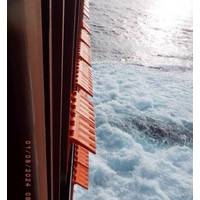
Experts Discuss Maritime Security Risks
flexibility of OCIMF’s new SIRE 2.0 Focused Inspection Campaign by Dave Cudbertson, OCIMF Programs Director. Cudbertson focuses on its ability to help the industry keep pace by strengthening vessel hardening processes, equipment and procedures to protect seafarers.The latest Maritime Matters: The MarineLink Podcast also focuses on maritime security. Seequent, the Bentley Subsurface Company, helps organizations understand what’s happening under the seabed, helping to identify and mitigate risks such as unexploded ordinance (UXO). Matt Grove – EMEA Regional Segment Manager – Offshore
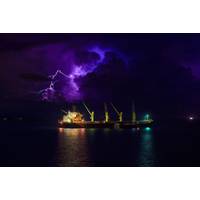
Study: Low Sulfur Fuel Reduces Lightning, May Increase Temperatures
clouds form. When we have more ice clouds, we have a higher chance of lightning. That is how sulfate aerosols can be connected to lightning.”While the 2020 regulations on shipping were intended to clean up the air, the reduction in lightning can be seen as a side benefit as it can be dangerous to mariners and equipment as well as hinder visibility and normal operations at sea. Jin said another consequence of the shipping regulation might be warmer global temperatures.“Due to the 2020 emission regulation imposed by the International Maritime Organization, we observed a decrease in sulfur emissions
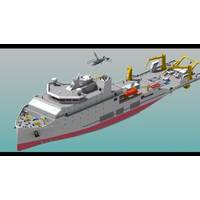
Kongsberg Maritime to Supply Rim-Drive Thrusters for Indian Research Vessel
Kongsberg Maritime has secured a contract to supply its rim-drive thrusters for a new acoustic research vessel being built for India’s Naval Physical and Oceanographic Laboratory (NPOL). The vessel, under construction at Garden Reach Shipbuilders & Engineers (GRSE), will play a critical role in oceanographic and acoustic research for the Defence Research and Development Organisation (DRDO).The Kongsberg Maritime rim-drive thrusters were selected for their ability to meet exceptionally strict underwater radiated noise requirements, a key factor for acoustic research operations. By eliminating
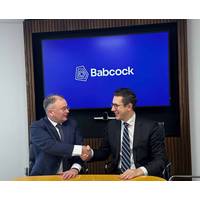
Babcock, Frankenburg Partner on Counter‑Drone Maritime Defense System
Babcock and Frankenburg Technologies have signed a memorandum of understanding (MoU) to explore development of a new maritime counter‑drone air defense system in response to the rise of one‑way attack drones.Under the agreement, the partners will work on a cost‑effective, containerized platform for launching Frankenburg’s new low‑cost missiles, designed specifically to defend against one‑way attack drones. The capability is intended to offer affordable, scalable, kinetic solutions to protect military personnel and critical national infrastructure across Europe.Frankenburg’s engineering
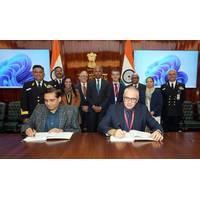
Fincantieri’s WASS Bags $235M Torpedo Order from Indian Navy
Fincantieri, via its subsidiary WASS Submarine Systems, has secured a contract from the Indian Navy to supply Black Shark Advanced (BSA) heavyweight torpedoes for six Scorpène-class submarines in service with the fleet.The contract, valued at more than $235 million, is the largest ever awarded in WASS’s history and coincides with the company’s 150th anniversary. Deliveries are scheduled between 2028 and 2030, with production to be carried out at WASS’s facility in Livorno, Italy’s national center of excellence for underwater systems.The Black Shark Advanced torpedo is
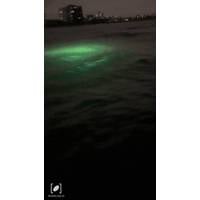
2025: Fascinated with Subsea Discovery
Our fascination with the depths of the ocean revealed itself in some of our most-read stories of 2025.What’s really down there? asked New Wave Media President Greg Trauthwein in his interview with Matt Grove, Regional Segment Manager Offshore at Seequent in September, in the most watched Offshore Engineer TV show.Working underneath the world’s waters is a challenge in and of itself, a challenge exacerbated if an operator does not have a clear picture of the make-up of the seabed with insights on the potential traps that might await. Grove discussed the value of finding out for a broad
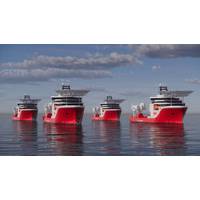
Kongsberg Maritime Secures LARS Contract with Sea1 Offshore
Kongsberg Maritime has signed a major contract with Sea1 Offshore to deliver Launch and Recovery Systems (LARS) for the company’s four new offshore construction vessels. Each vessel will be equipped with two advanced LARS units, supporting subsea construction and ROV operations.The scope of supply per vessel includes two telescopic A-frames, fully electrical umbilical winches, energy efficient hydraulic power units, and a dedicated control system. Each system offers a safe working load of 15 tonnes (vehicle dry weight) and winch cable capacity of 4,500 meters, ensuring robust performance for
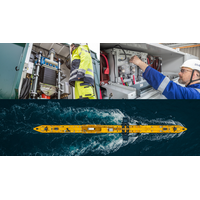
EMEC Completes Tidal, Hydrogen and Battery Demonstration
A world-first demonstration combining tidal power, battery storage, and hydrogen production has been completed at the European Marine Energy Centre (EMEC) in Orkney, Scotland.The demonstration successfully integrated three technologies – Orbital Marine Power’s O2 tidal turbine, vanadium flow batteries supplied by Invinity Energy Systems, and an ITM Power 670 kW electrolyser, at EMEC’s onshore site on the island of Eday.Multiple energy flow scenarios were trialed. During high generation periods, power from the O2 was used to charge the battery system, supply electricity directly to
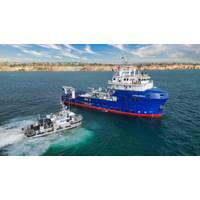
STAPEM Ops for Sonardyne’s Precise Positioning System
France-based STAPEM Group has chosen Sonardyne’s Ranger 2 Ultra-Short BaseLine (USBL) technology as the permanent solution for one of its flagship offshore support vessels, the STAPEM Boreale.Operating in one of STAPEM Group’s key regions, Angola, the vessel is now equipped with a Ranger 2 GyroUSBL 7000 system, an all-in-one, high-performance USBL system for precise positioning performance, previously used on a hire basis.Ranger 2 GyroUSBL 7000 is optimized for ultra-deepwater operations and, like all Ranger 2 GyroUSBL systems, includes a single, pre-calibrated transceiver head. Its

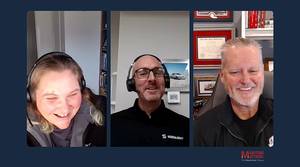
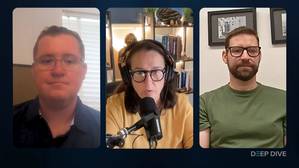
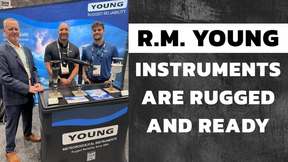
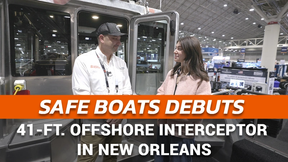
 December 2025
December 2025





